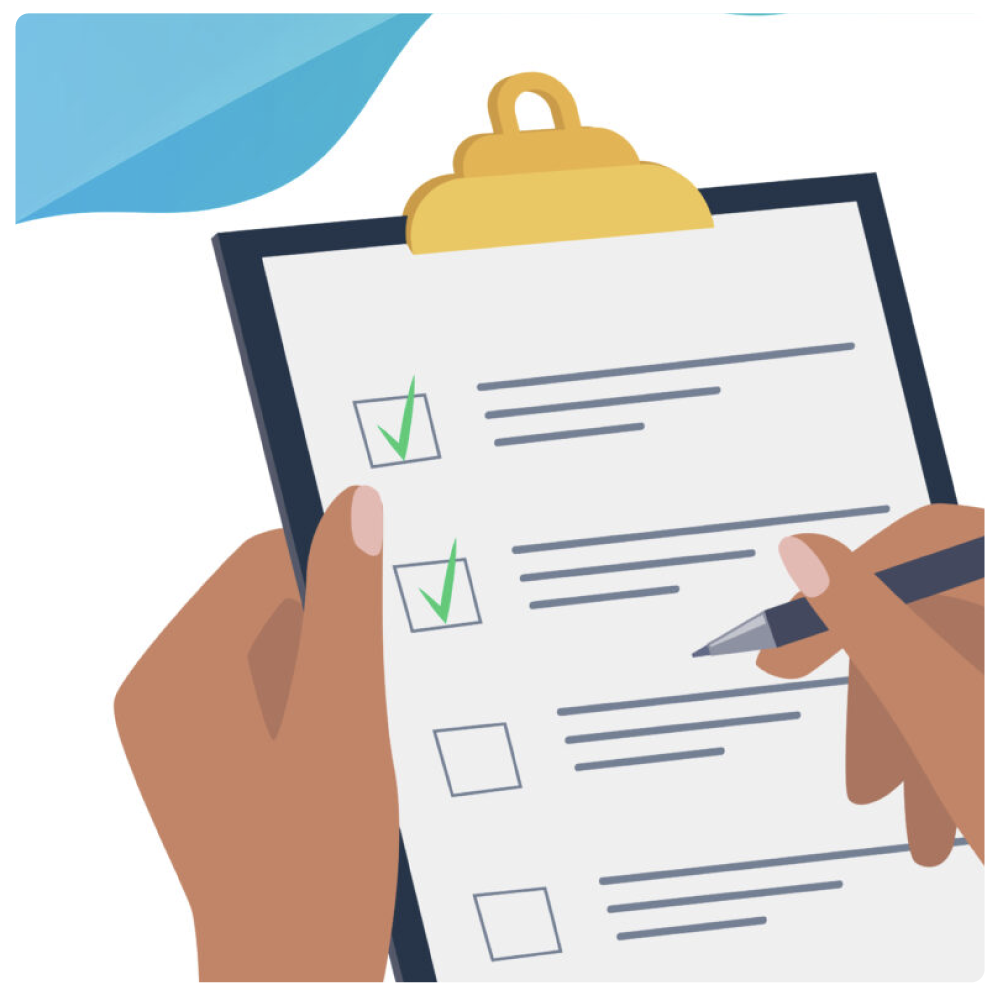TCPA regulations: The complete guide for businesses

If your business connects with customers through phone calls or text messages, you’re operating in a tightly regulated space. Whether you’re generating leads or purchasing them, understanding the United States’ TCPA regulations is not just important—it’s critical to your viability and sustainability.
This guide will walk you through what TCPA regulations are, what they apply to, and the specific rules your business needs to follow to stay compliant. You’ll also learn how ActiveProspect’s TrustedForm can help you document consent, reduce risk, and maintain full compliance with confidence.
What are TCPA regulations?
The Telephone Consumer Protection Act (TCPA) is a U.S. federal law created to protect consumers from unwanted telemarketing calls, faxes, and automated messages. At its core, TCPA regulations set strict rules around how and when businesses can contact consumers by phone or text, especially when using autodialers, prerecorded voice messages, or SMS campaigns.
For companies in the lead generation and outbound calling or texting space, compliance with these regulations is a core operational requirement. The TCPA mandates consent-based outreach, clearly defining the boundaries between acceptable marketing practices and violations that could lead to lawsuits, fines, and reputational damage.
And for marketers relying on automation to engage leads, understanding and respecting these rules is absolutely critical. If you’re asking, “What are TCPA regulations?” Here’s the straight answer: they are legal guardrails that determine who you can contact, how you can reach them, and what kind of consent you need to do it legally.
What do TCPA regulations apply to?
Many businesses underestimate the reach of TCPA regulations. The truth is, these rules apply to far more than just traditional telemarketing calls.
TCPA regulations cover a wide range of communication methods, including:
- Autodialed calls made using an Automatic Telephone Dialing System (ATDS)
- Prerecorded or artificial voice messages
- Text messages, including SMS, MMS, and iMessage
- Faxes, which remain under TCPA jurisdiction
- Robocalls, particularly those targeting mobile phones
- Calls to any number listed on the National Do Not Call (DNC) Registry
In short, if you’re contacting consumers through any automated or semi-automated method, TCPA regulations apply.
And the bar is only getting higher. As of 2025, the FCC has expanded the definition of “autodialer” to include AI-generated voice systems and certain texting platforms, meaning more technologies now fall under federal oversight.
It’s also important to note that several individual states have their own mini-TCPA laws, some of which are even more restrictive than the federal version. These state-level laws often include additional consent requirements, stricter calling time windows, and their own Do-Not-Call lists. Businesses must comply with both federal and state TCPA rules to avoid violations.
Main TCPA regulations to know in 2025
If you generate or buy leads, staying compliant with the TCPA isn’t just a smart move—it’s a legal necessity. Here are the critical regulations your business must understand and operationalize to avoid costly violations:
1. Prior Express Written Consent (PEWC)
Before sending any marketing message via autodialed call or text, you must obtain prior express written consent. This is a legal agreement, not just a checkbox.
To be valid under the TCPA, PEWC must:
- Be clear and unambiguous
- Explicitly state that consent is not a condition of purchase
- Identify your specific business as the one authorized to contact the consumer
- Be properly documented and stored for potential audits or litigation
Text messages are treated the same as calls under the TCPA. If you’re using an automated platform to send promotional texts, you must have PEWC and include a clear opt-out option in every message.
2. Do-Not-Call (DNC) compliance
Calling someone on a Do Not Call list—without proper consent—could be a TCPA violation.
Make sure you have documented processes to:
- Scrub all leads against the National Do-Not-Call Registry of phone numbers
- Check applicable state DNC lists, which may have stricter rules
- Maintain and honor your own internal DNC list of opt-out requests
- Scrub customer or lead phone numbers against the RND Reassigned Number Database services to identify phone numbers that changed owners.
Even manually dialed calls could violate TCPA if you contact a number on one of these lists for a sales or marketing purpose without the proper consent. Ignorance is not a defense—if the call happens, you could be liable.
3. Call time restrictions
You are only permitted to call residential landlines or mobile numbers between 8:00 a.m. and 9:00 p.m. in the recipient’s local time zone. This window exists to protect consumers’ peace and privacy.
Several states impose even tighter restrictions, so always cross-reference your outreach plans with state-level rules.
4. Identification requirements
Marketing calls and text campaigns must include:
- The name of your business
- The name of the person or entity on whose behalf you’re contacting the consumer
- A valid phone number or address that the consumer can use to get in touch or request removal
Failing to identify yourself or your business transparently can trigger complaints, lawsuits, and enforcement actions.
5. Consent revocation
Consent isn’t forever, and failing to act promptly on an opt-out request is one of the fastest ways to trigger a TCPA lawsuit. Under the TCPA, consumers have the right to revoke consent at any time, using any reasonable method—including replying “STOP” to a text or asking verbally to be removed from your call list.
As of April 11, 2025, the new TCPA revocation rules were updated to include:
- All revocation requests must be made within 10 business days
- An opt-out via one channel (e.g., text) is treated as a global opt-out for all marketing communications
- You may send a one-time confirmation message after a revocation, but it must be non-promotional
- A consumer’s failure to respond to a confirmation text should be treated as confirmation of the opt-out
By fully internalizing PEWC, DNC compliance, call timing, clear identification, and revocation management, you can significantly reduce your TCPA exposure.
Why TCPA compliance matters
Violating the TCPA can devastate your business financially, legally, and reputationally. Fines range from $500 to $1,500 per call or text, and that’s per violation. Even if the breach was unintentional, you’re still liable under the law’s strict liability standard. When violations scale across thousands of contacts, the costs quickly become staggering.
In April 2023, a Florida court approved a $40 million TCPA class-action settlement against a real estate company for unauthorized autodialed calls. That was for just one case.
But that’s far from the ceiling. If a court determines the violation was willful or knowing, the penalties can triple—a legal concept known as treble damages. That means a $500 fine becomes $1,500 per call or text, multiplying quickly in any campaign-based outreach.
Now, imagine a campaign that inadvertently violates TCPA rules across 10,000 contacts. That’s a potential exposure of $5 to $15 million, even before you factor in legal fees.
And the consequences don’t end with the checkbook.
The financial penalties for TCPA violations are steep, but the collateral damage can be even worse. Businesses hit with lawsuits often face multi-million-dollar class actions, crippling legal fees, and federal court battles led by attorneys who specialize in maximizing settlements.
At the same time, violations can spark negative press, public backlash, and long-term brand damage, especially in industries like home services, finance, or insurance, where trust is everything.
Legal trouble also brings operational strain. Leaders shift focus to defense, marketing campaigns get paused, and internal teams scramble to fix gaps under pressure. Add regulatory scrutiny from the FCC or FTC, and you’re looking at audits, investigations, and possible restrictions on future marketing efforts.
One misstep can disrupt your business, erode your reputation, and stall growth.
How TrustedForm helps you stay TCPA compliant
Navigating TCPA compliance can feel overwhelming, but ActiveProspect’s TrustedForm makes it manageable and measurable. As the industry’s leading independent proof-of-consent solution, TrustedForm captures and certifies exactly when, where, and how consent was obtained from a consumer, giving your business the documented evidence it needs to bolster compliance and mitigate the risk of litigation.
With over 20 years of expertise in consent-based marketing, TrustedForm supports thousands of companies in certifying over 1 billion leads per year across more than 55,000 websites. Whether you’re a lead buyer, seller, or publisher, TrustedForm offers a reliable, real-time way to document and verify proof of consent at the moment it’s given.
Final thoughts
TCPA regulations are no longer just a legal detail—they’re a make-or-break factor for any business that communicates with consumers through calls or texts. As this guide has shown, staying compliant means more than avoiding robocalls. It requires understanding exactly what’s regulated, securing valid consent, honoring opt-outs, following DNC rules, and documenting everything with precision.
The penalties for getting it wrong are severe, and as the FCC’s definition of autodialers expands and state-level laws tighten, the risks only grow. But compliance doesn’t have to be a guessing game.
By using TrustedForm, your business gains a transparent view into the origin, authenticity, and intent of every lead, reducing the risk of TCPA violations and improving lead quality at the same time. It’s more than a compliance tool—it’s a safeguard for your brand’s integrity and a critical layer of trust between you and your customers.
Join the companies setting the standard for consent-driven marketing. Stay compliant, build trust, and protect your business with TrustedForm.
DISCLAIMER: This page and all related links are provided for general informational and educational purposes only and are not legal advice. ActiveProspect does not warrant or guarantee this information will provide you with legal protection or compliance. Please consult with your legal counsel for legal and compliance advice. You are responsible for using any ActiveProspect Services in a legally compliant manner pursuant to ActiveProspect’s Terms of Service. Any quotes contained herein belong to the person(s) quoted and do not necessarily represent the views and/or opinions of ActiveProspect.






